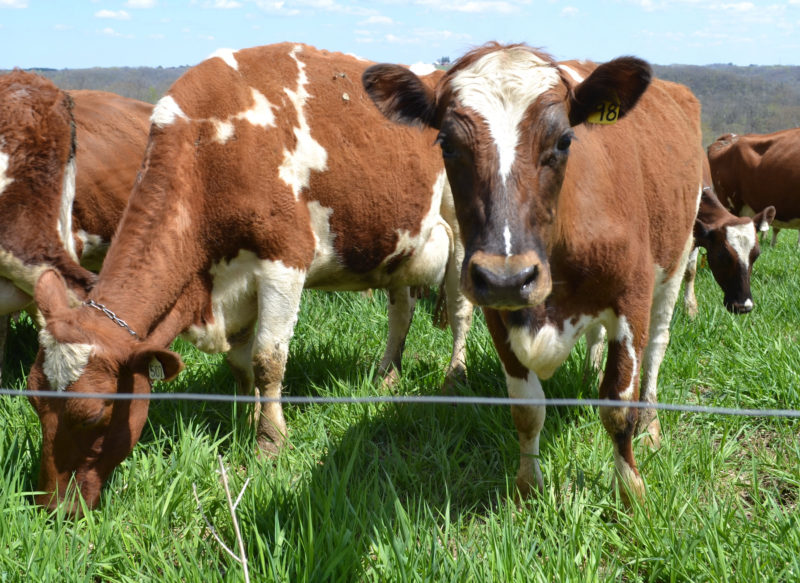A functioning ecosystem isn’t complete without animals to help close the nutrient loop. One key way farmers are building soil  organic matter, cycling nutrients, and adding economic value to their farmland is by integrating ruminant livestock — beef cattle, dairy cattle, sheep, and goats — into a well-managed grazing system. Simply turning animals out onto open pastures and allowing them to roam creates its own problems. Farmers raising livestock as a soil- and profit-building tool are using managed rotational grazing of livestock. A managed rotational grazing system generally includes:
organic matter, cycling nutrients, and adding economic value to their farmland is by integrating ruminant livestock — beef cattle, dairy cattle, sheep, and goats — into a well-managed grazing system. Simply turning animals out onto open pastures and allowing them to roam creates its own problems. Farmers raising livestock as a soil- and profit-building tool are using managed rotational grazing of livestock. A managed rotational grazing system generally includes:
- Being goal-oriented and flexible.
- Using higher stock densities and moving livestock more frequently to graze and distribute fertility across the landscape evenly.
- Relying on temporary fencing technology for frequent movement.
- Increasing rest periods to allow for plant root system recovery.
Managed rotationally grazing systems can go beyond sustainability — they can help to regenerate soil by sequestering carbon, supercharging biological activity, and building soil structure. Many farmers are using managed rotational grazing to increase productivity of perennial pastures and allow for multiple uses of annual cropland through grazing of cover crops and crop residue. Please check out the resources on this page to learn more about managed rotational grazing and the ways farmers are implementing this tool.
Field Days & Workshops
• Ongoing — LSP Grazing Group Pasture Walks & Other Field Days & Workshops
Grazing Fact Sheets
• Financial Analysis of Cow-Calf Grazing
• Grazing For Landowners: Livestock as a Tool for Land Management
• Managed Grazing: Soil Health & Profitability for Farmers With Livestock
Grazing Stories, Blogs & Podcasts
- Podcast: What happened when beginning farmers Rachelle and Jordan Meyer started listening to the land and turned livestock loose on a “bacterial farm.”
- Midwest Family La Crosse Radio Interview: Meyer Family Embraces Regenerative Agriculture with Diversified Farming (3/10/20)
- Blog: Midwestern Farms Can Counter Climate Change (3/9/20)